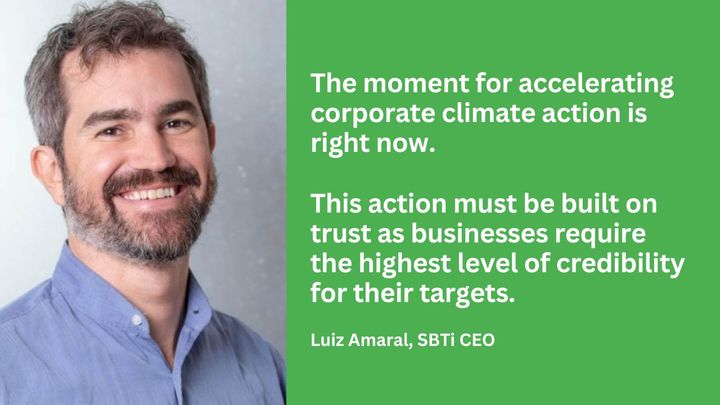Philips: Pioneering Supplier Decarbonization in Health Technology

Philips, a global frontrunner in health technology, is making waves with its robust approach to reducing its carbon footprint. The company's dedication to sustainability was recently spotlighted during a webinar hosted by the Science Based Targets initiative (SBTi), emphasizing the importance of supply chain decarbonization.
A Legacy of Environmental Commitment
"Since 2003, Philips has looked at ways to improve the environmental performance of its suppliers," shared Tom Scholz, Supplier Sustainability Manager at Philips. This statement underscores a commitment that spans nearly two decades, highlighting Philips' long-standing dedication to environmental stewardship.
Ambitious Goals for the Future
In 2021, Philips announced a bold initiative: "We are now aiming for at least 50% of our suppliers based on spend committing to science-based targets for carbon footprint reduction by 2025," Scholz revealed. This ambitious goal underscores Philips' dedication to driving significant reduction in greenhouse gas emissions throughout their supply chain.
Philips' SBTi Commitment:
In January 2023, Philips achieved a significant milestone by becoming the first health technology company to have its entire value chain CO2 emissions reduction targets approved by the Science Based Targets initiative (SBTi). This commitment to net-zero across the value chain further cements Philips' position as a leader in sustainability.
- Philips is the first health technology company with its entire value-chain CO₂ emissions reduction targets approved by the Science Based Targets initiative (SBTi).
- Philips has a net-zero commitment across its value chain.
- 40% of Philips' suppliers (based on spend) have committed to science-based targets, aiming for a 50% supplier commitment by 2025.
- Philips' Scope 3 CO₂ emissions reduction targets have been assessed and approved by SBTi.
"We are now aiming for at least 50% of our suppliers based on spend committing to science-based targets for carbon footprint reduction by 2025"
Tom Scholz, Supplier Sustainability Manager at Philips
Engaging Suppliers with a Unique Approach
Philips has adopted a novel approach to supplier engagement. They assess suppliers based on their climate action maturity, fostering a relationship that emphasizes the supplier's journey towards science-based targets. This approach ensures that suppliers are not just compliant but are also active participants in the decarbonization journey.
Leveraging Technology for Sustainability
In a move that showcases their innovative spirit, Philips has employed artificial intelligence models to predict the capabilities and willingness of suppliers to decarbonize. This strategy allows Philips to focus on the most significant suppliers, reducing the reporting burden and ensuring that efforts are directed where they can have the most impact.
Supplier Cascade: How to accelerate supply chain climate action
Conclusion
Philips' commitment to supply chain decarbonization is both visionary and actionable. By setting clear targets, innovatively engaging with suppliers, and leveraging technology, Philips is setting a benchmark in the health technology sector. As the world grapples with the pressing need for sustainability, Philips' strategy offers a beacon of hope and a roadmap for others to follow.





Comments ()